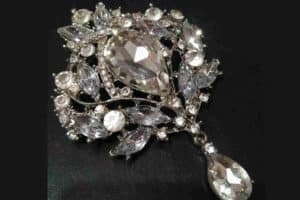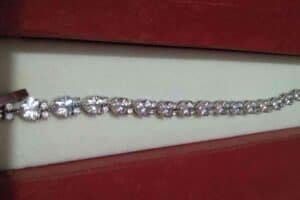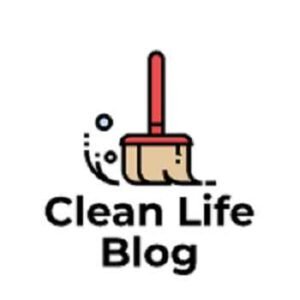Wondering: Can hot water clean jewelry?? It’s a common question for those looking for an easy, effective way to brighten up their beloved pieces.
Let me guide you through the fascinating world of jewelry maintenance. I’ve explored various cleaning methods throughout my journey and have some intriguing findings to share.
Today, I’ll offer insights and tips to help you figure out if hot water is your go-to for keeping your jewelry shining. So, let’s get started on this enlightening journey together and discover the truth behind this age-old question.

Can Hot Water Clean Your Jewelry?
You may wonder if hot water can cleanse your jewelry as you eye your collection for a simple cleaning solution. Let’s delve into this topic and see if hot water can restore the shine to your treasured pieces.
Hot Water Cleaning: The Good and the Bad
Hot water is a fantastic cleaning ally, particularly for certain jewelry types. It removes day-to-day dirt and is conveniently available in every home. However, it’s not a universal fix.
Your jewelry type dramatically affects how well hot water will work. It’s perfect for durable metals like gold and platinum but might not be the best for fragile items or gemstones sensitive to heat.
Weighing the Pros and Cons of Hot Water Cleaning
Let’s look at the pros and cons. Hot water’s simplicity and accessibility are its most significant advantages. It offers a no-chemical, gentle cleaning option, reducing the risk of damaging your pieces with abrasive substances.
However, hot water can deform some metals or cause gemstones to crack if they undergo sudden temperature changes.
Understanding Jewelry’s Reaction to Hot Water
It’s essential to recognize that jewelry varies widely. Different metals and gemstones react uniquely to hot water; knowing these differences is crucial to avoid ruining your pieces.
Here’s how some common materials generally react to hot water:
- Gold: Usually safe and doesn’t tarnish quickly.
- Silver: Tends to tarnish, especially when exposed to chemicals in water.
- Platinum: Handles hot water well, similar to durable gold.
- Gemstones: Their reactions vary. Hard stones like diamonds and rubies are typically fine, but softer or porous stones like opals and pearls require extra care.
Best Practices for Hot Water Cleaning
To clean your jewelry safely with hot water, follow these tips:
- Remove any surface dirt before soaking.
- Gently scrub with a soft brush if necessary.
- Soak for 10-15 minutes for gold and platinum, then dry with a soft cloth.
- For silver, use lukewarm water and dry immediately to prevent tarnish.
- Hard gemstones usually withstand hot water but inspect for cracks first.
- Avoid hot water for soft or porous gemstones; use a damp cloth instead.
A Detailed Guide to Cleaning with Hot Water
Cleaning jewelry with hot water can be effective if you follow the proper steps. Here’s how to do it safely:
- Prepare: Gather a soft brush, hot (not boiling) mild dish soap, water, and a lint-free cloth.
- Inspect: Check for any loose stones or weak settings. Avoid cleaning damaged items in hot water.
- Mix: Add a bit of mild dish soap to the hot water.
- Soak: Submerge robust metals for 15-20 minutes. Limit soaking time for delicate items.
- Gentle Brushing: Clean with a soft brush, especially around intricate areas.
- Rinse and Dry: Rinse with lukewarm water and dry thoroughly.
- Polish: Use a damp cloth for extra shine.
Specific Tips for Different Jewelry Types
- Silver: Use warm water instead of hot and dry quickly.
- Gemstone Jewelry: Clean hard stones as described, but only use a damp cloth for soft or porous stones.
- Costume Jewelry: Avoid water. Clean with a damp cloth.
- After Cleaning: Storing Your Jewelry
- Dry and Store: Ensure everything is arid before storing it in a dry spot, preferably in soft pouches.
Do’s and Don’ts of Hot Water Cleaning
| Do’s of Hot Water Cleaning | Don’ts of Hot Water Cleaning |
|---|---|
| Do Clean: | Don’t Clean: |
| – Solid gold jewelry | – Jewelry with delicate gemstones like pearls |
| – Platinum pieces | – Soft or porous stones like opals |
| – Sturdy gemstones like diamonds and sapphires | – Costume jewelry with glued parts |
| – Stainless steel jewelry | – Silver jewelry (hot water may accelerate tarnishing) |
| Precautions: | Risks: |
| – Check for loose stones/settings | – Cracking or damage to delicate gemstones |
| – Use a soft brush for cleaning | – Warping or discoloration of sensitive metals |
| – Test on a small, inconspicuous area first | – Loose settings due to rapid temperature change |
| – Dry jewelry immediately to avoid water spots | – Residual soap or water causing damage |
Precautions and Tips for Cleaning Jewelry with Hot Water
Cleaning jewelry with hot water might seem straightforward, but there are some essential safety measures and tips to remember to ensure you’re doing it right and not risking damage to your precious pieces.
Let’s go through some essential precautions and helpful tips for cleaning your jewelry with hot water:
#1 Checking the Water Temperature
Before immersing, ensure the water is at a suitable temperature, avoiding extreme heat. This measure is significant in order to safeguard delicate metals and gemstones from any potential harm or adverse effects.
#2 Gradual Introduction
Ease your jewelry into the warm water. A slow immersion helps avoid thermal shock, which can particularly damage delicate items like opals or pearls.
#3 Selecting the Right Soap
Choose a mild, non-abrasive soap. Harsh chemicals are your jewelry’s enemy, potentially leading to discoloration and deterioration of various metals and stones.
#4 Inspecting for Loose Parts
Give each piece a gentle shake or wiggle before cleaning it. Detecting loose parts beforehand can save you from worsening the issue with a water cleanse.
#5 Soaking Time
Keep it brief. While metals like gold and platinum can handle more time in the water, delicate stones or detailed settings should only be soaked briefly.
#6 The Right Brush for Cleaning
Choose a brush with gentle bristles to efficiently eliminate dirt and grime without causing any harm. Using a brush with stiff bristles may lead to unwanted scratches or damage to your valuable items.
#7 Rinsing Off Soap
Ensure all soap is thoroughly rinsed with warm water to prevent residue build-up.
#8 Drying Your Jewelry
Dry each piece thoroughly with a soft, lint-free cloth. Moisture can lead to tarnish, particularly with metals like silver.
#9 Buffing for Shine
After drying, use a clean, soft cloth to polish your jewelry, gently restoring its natural glow.
#10 Handling Delicate Pieces with Care
Consider professional cleaning to avoid risk if dealing with fragile, antique, or previously repaired jewelry.
Remember, overly hot water, prolonged soaking, or aggressive chemicals are more likely to damage your jewelry than restore it.

Alternatives for Sensitive Jewelry
Some pieces aren’t cut out for warm water cleaning. Here’s what else you can try:
Specialized Jewelry Cleaners
Choose products specifically tailored for your particular type of jewelry. These specialized formulas are designed to cleanse your jewelry effectively without harming its quality.
Polishing Cloths
These cloths are impregnated with polishing agents and are particularly good for metals like silver, helping to remove tarnish and restore shine.
Homemade Baking Soda Solution
A baking soda and water paste can work wonders, especially on silver and hardy gemstones.
Vinegar for the Tough Stuff
White vinegar can clean hard gemstones like diamonds well, but avoid it on softer stones or gold.
The Simple Damp Cloth
Sometimes, all your jewelry needs is a gentle wipe with a damp cloth, particularly for delicate or antique pieces.
Ultrasonic Cleaners
These devices can clean complex designs thoroughly but use them cautiously with fragile gemstones.
Expert Insights on Hot Water Cleaning
Incorporating expert opinions can offer valuable perspectives.
“As a certified gemologist, she notes hot water’s effectiveness for sturdy metals and advises caution for more delicate pieces.”
Margaret Sullivan’s Viewpoint
“With 20 years of experience, he emphasizes understanding the nature of the material before using hot water for cleaning.”
James Carter’s Professional Advice
“A jewelry restoration expert, she often suggests a mild hot water soak with a drop of dish soap for a chemical-free clean.”
Anna Rodriguez’s Natural Approach
“As a master goldsmith, he respects hot water cleaning as an age-old method but warns against boiling temperatures.”
Leo Thompson’s Traditional Technique
“A jewelry blogger and consultant, she underscores the effectiveness of hot water and gentle soap for routine maintenance.”
Sophie Martin’s Economical Solution
Addressing Common Concerns
Here are some FAQs to guide you:
- Suitability for Different Jewelry Types:
Not all jewelry is a good candidate for hot water cleaning. Understand your piece’s material and structure before deciding. - Water temperature:
The ideal water temperature is warm but not scalding, which is the key. It is too hot, and you risk damaging your jewelry. - Silver Cleaning Tips:
Be extra careful with silver; it’s prone to tarnish when exposed to hot water. Quick cleaning and immediate drying are best. - Soaking Duration:
Limit soaking to 15-20 minutes for most jewelry, and reduce this time for more delicate items. - Soap or No Soap?
A mild dish soap can help with cleaning, but it’s unnecessary. If you do use soap, pick a gentle one.
Concluding Thoughts
While warm water can be handy in your jewelry-cleaning arsenal, it’s not a one-size-fits-all solution. Assess each piece’s needs, proceed with caution, and when in doubt, seek professional advice. Share your cleaning successes and tips in the comments to help others keep their treasures shining.
